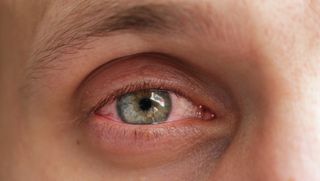Conjunctivitis and red eyes
Learn about the symptoms and causes of conjunctivitis.

Summary
Also known as 'pink eye', conjunctivitis is an eye inflammation which can be caused by bacteria, viruses, allergens, or irritants. Each cause has a different treatment plan and may affect the eyes in slightly different ways.
Conjunctivitis is an eye inflammation that causes the conjunctiva, which is the thin tissue covering the front of the eye, to become red and irritated. It is also often known as ‘pink eye’ because the inflammation causes the whites of your eyes to become pink or red in colour. It can affect one or both eyes.
For more information
- Find an optometrist.
- Always speak to your GP and eye care professional about the best treatment options for you.
Did you find this article helpful?
Share your thoughts and help us make our resources better for everyone.
Enjoying the content?
Start building your profile to access personalised support, resources, and tools tailored to your eye health journey.
